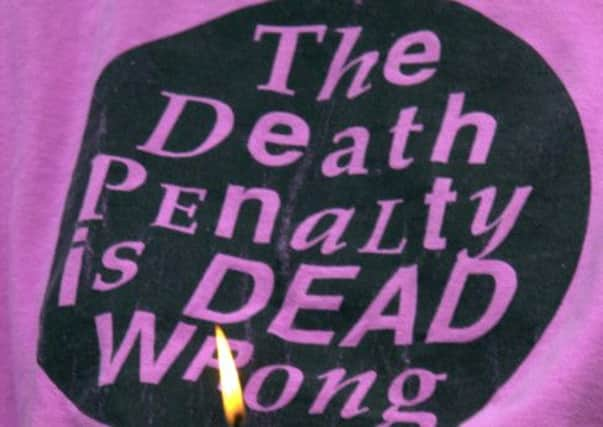The two men who walked to their death and into the history books


At the stroke of 8am 50 years ago this week, Gwynne Evans and Peter Allen had their cell doors thrown open, their arms strapped behind their backs, and were escorted the 12 paces to the gallows.
With a quick flick of the wrist the executioner pulled the lever and the trapdoors opened, plunging the two convicted murderers to their deaths.In separate prisons in Manchester and Liverpool, 36 miles apart, the two men secured the dubious joint honour of being the last people executed in Britain.
Advertisement
Hide AdAdvertisement
Hide AdThey had both been hanged for the murder of John West, a 53 year-old van driver, who died in a bloody heap at his home after being bludgeoned with an iron bar. But while their deaths on August 13, 1964 secured their place in history books, they went almost unnoticed at the time.
Family and friends were banned from the execution and there was barely a mention of them in the newspapers - just a couple of lines in The Times and The Daily Mirror.Insofar as a murder and execution can be, this was run-of-the-mill stuff.
“It was probably just bad luck that these two men went to the gallows,” says criminologist Steve Fielding. “It wasn’t a particularly gruesome case, the men just needed money. But they ended up paying with their lives.”
The pair had murdered John West, known to his friends as Jack, just a few months before on April 7. They had travelled to his home in Cumbria the night before in a stolen car with Allen’s wife, two children and a stray lamb they had picked up along the way. When West’s semi-naked body was found in a pool of blood at the foot of his stairs, it only took a matter of days for police to track down and arrest the killers.
Advertisement
Hide AdAdvertisement
Hide AdThey were found guilty in June, had their appeals rejected on July 21 and were hanged three weeks later. Little is known about what went through the killers’ minds after they were handed a death sentence - just a few words.
“Peter Allen, when he had his last meeting with his wife, he banged his hand on the glass panel with such force that he broke his wrist,” says Fielding. “And when he was walked up to the trapdoors he said ‘Jesus’. He didn’t have time to do anything else. It was all over in a matter of seconds.”
Yet it is likely the two men would have hoped they would be spared their sentence. A string of controversial and high-profile executions had sparked public outrage against the penalty, and by 1964 around half of all convicts sentenced to death were given reprieves. Noy Allen and Evans.
The death penalty for murder was suspended in 1965 and abolished in 1969 following an overwhelming vote in the House of Commons.
Advertisement
Hide AdAdvertisement
Hide AdFielding adds: “We had gone through the war and were getting towards a less brutal society. And the Labour government came into power on the promise they would abolish the death penalty.”
Fifty years after Britain’s last hangings, the death penalty remains a hotly debated topic. The botched execution of Joseph Wood in Arizona last month, who was given a lethal injection but remained alive for nearly two hours gasping and snorting, provoked widespread revulsion.
Yet walk into a pub in Britain and it is not hard to find someone who thinks the death penalty should be brought back. Many see it as the only true deterrent and fitting punishment for child killers and other violent criminals. Internet petitions demanding its restoration attract tens of thousands of signatures, and it routinely rates high in opinion polls.
Whatever the rights and wrongs of capital punishment, one thing can be said with some certainty.
When they took their final breaths, Evans and Allen would have not known their deaths would spark such interest five decades later.